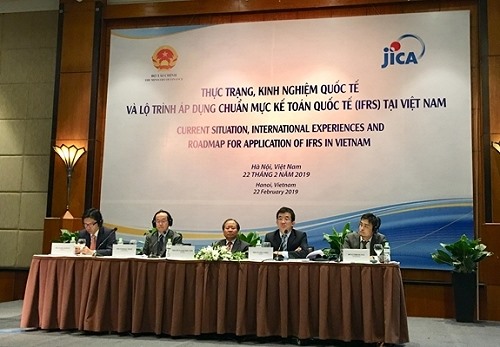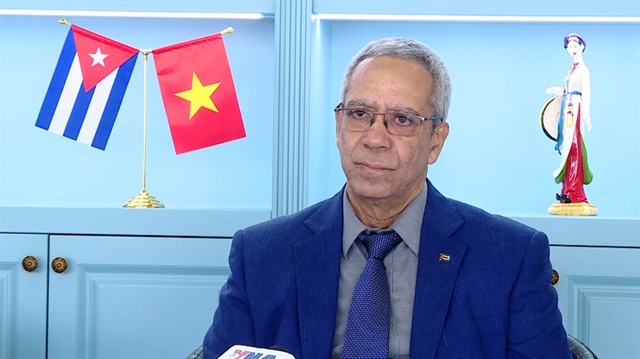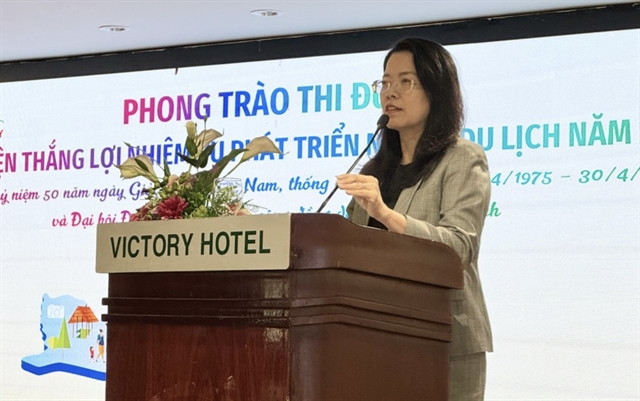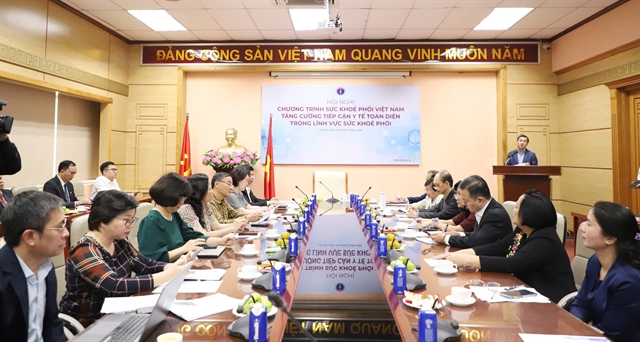 Economy
Economy

The adoption of International Financial Reporting Standards (IFRS) would help Việt Nam create a more transparent business environment to attract foreign direct investment.
 |
| The Japan International Co-operation Agency in collaboration with the Ministry of Finance organised a seminar held in Hà Nội on Friday on the application of international accounting systems. — Photo congluan.vn |
HÀ NỘI — The adoption of International Financial Reporting Standards (IFRS) would help Việt Nam create a more transparent business environment to attract foreign direct investment.
The statement was made by Deputy Minister of Finance Đỗ Hoàng Anh Tuấn at a seminar held in Hà Nội on Friday, themed “Experience in Applying IFRS Internationally and Roadmap for Adoption in Việt Nam”, co-organised by the Japan International Co-operation Agency (JICA) and the Ministry of Finance (MoF).
“Việt Nam has a high and growing degree of economic openness. The free trade agreements the country has signed all encourage free trade and investment capital flows, especially from the private sector. Therefore, the application of international accounting systems is crucial and inevitable,” Tuấn said.
Konaka Tetsuo, chief representative of JICA in Việt Nam, said the IFRS was an important financial tool, supporting investors with accurate financial information when making investment decisions, as well as helping mobilise global financial resources.
In Việt Nam, JICA had provided financial and technical support, facilitating the exchange of experiences on applying IFRS in Japan and other Asian countries, and helping strike a balance between the application of IFRS and the national accounting system.
According to a representative of the Accounting and Auditing Policies Department under the Ministry of Finance, the application of IFRS would bring practical benefits to enterprises as the quality of their financial statements would be significantly improved, while transparency, accountability and comparability would also be enhanced.
IFRS is widely accepted and applied internationally, so it would make it easier to compare the situation and financial results of businesses between different countries. By applying these new financial reporting norms, Vietnamese businesses would have a better chance of raising capital in the international market.
The representative also said the application of IFRS would create favourable conditions for attracting foreign direct investment into Việt Nam. As a result, the number of multinational companies operating in Việt Nam would increase as they would no longer need to convert from national accounting standards to IFRS.
However, participants at the seminar said the application of IFRS in Việt Nam still faced many challenges. The country’s capital and financial markets were not strong enough. Some financial instruments such as convertible bonds, derivatives and preferred stocks were not widely traded so most businesses had little experience in conducting transactions. This meant it was not always possible to provide accurate and valuable financial information.
The language barrier was also a difficulty since IFRS was drafted in English. To disseminate and promote IFRS, it needed to be translated from English into Vietnamese.
However, it would be very difficult to translate technical terms accurately. On the other hand, when a dispute occurred between a business, auditing and inspection agencies, the language barrier made it more complex for both sides. — VNS









